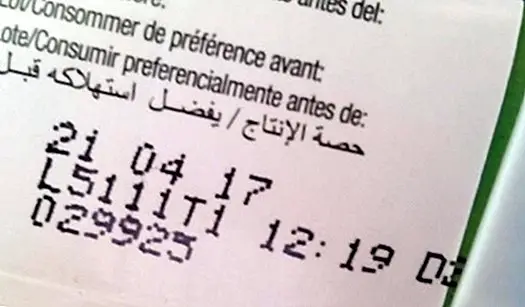Fever in babies: symptoms of alarm and treatment
One of the great handicaps that exist when a new baby arrives in the family, is that most times it is very difficult to know for sure when he has become ill. Unable to communicate with us, the child can not tell us how he feels, so it is very important to always be aware of the appearance of certain symptoms that can tell us that the baby suffers from high fever, for example.
In this sense, there are many parents who are a little lost. They do not know completely what are the symptoms and therefore are always always in a state of constant alert that sometimes is somewhat exaggerated and far from reality.

But there is not nothing to worry. First of all you have to keep a little calm and keep in mind that Any child will always be prone to suffer from low-grade fever, especially if you only have a few months to live.
However, although we must bear in mind that fever is always a natural defense mechanism of our body, in the case of babies and small children it is normal for the mother or father to worry excessively, especially if they are new and do not know very good what to do In these cases, we must maintain calm and calm, without neglecting the baby and watching him at all times.
Symptoms alert to baby fever
But what symptoms can serve as a warning signal or alert to parents, and that can be an indication that we should go to the emergency room ?.
For this reason, it is worthwhile to always be attentive to a series of symptoms that we will describe next .:
- Prolonged drowsiness and irritation. If we see that the child is most irritated by holding him or not crying after a considerable time, this may be a sign that he suffers from high fever.
- Red spots on the skin. It is also very possible that red spots appear all over their skin and are characterized mainly by not disappearing with the mere touch of our fingers.
- Vomiting Vomiting is also a clear sign that the child is suffering from a high fever.
- Intermittent breathing An intermittent or too panting breath can also mean that the baby has low-grade fever.

How can we treat a baby's high fever at home?
If we see that any of these symptoms have made an appearance, we will have to be very attentive in case these last for 1 or 2 days. Although meanwhile we can do the following:
- Wear light clothes. In this way we will be able to lower your body temperature by at least a half or one degree. It is also important that there is a minimum of ventilation in the room where the child stays.
- Keep it always hydrated. For this, it is important to always give mineral water through your bottle.
- Provide an antipyretic. A small dose of paracetamol can help you considerably reduce your body's body temperature. Although you should always consult your pediatrician as this will tell you what is the most recommended amount.
- Give him a bath of warm water. It is also not a bad idea to give the child a shower of warm water (never too cold) or simply apply heat to the nape of the neck and wrists.
- We should not give antibiotics on our own. Since they can have an adverse effect on the health of our baby. And therefore, it is always better to contact a pediatrician when it comes to providing a more powerful medication.
These are just some tips that can be very useful at the time of lowering the fever of the baby itself. You have to keep in mind that it seems very important to stay calm at all times.
For this reason, we must be attentive to all the symptoms that we have reported for at least the first 24-48 hours, After this time, the baby's health can improve considerably.
Otherwise, if the child begins to suffer from seizures or the temperature starts to be too high (We can check this by inserting a thermometer rectally) there will be no choice but to take it to the nearest hospital in order to give it a more specific treatment.
When to go to the emergency room?
Even though, in most cases, Baby fever will not be dangerous and much less disturbing (so that this will not be a clear reason for urgency), it is true that there are some cases in which it is more appropriate to go to the Emergency Department, either from the children's hospital or the nearest health center, so that the baby is recognized by a medical specialist.

And what are those cases? We summarize them below:
- Baby's age:If the baby is less than 3 months old.
- Temperature:If the baby's temperature is equal to or higher than 40ºC.
- Duration of fever:If the baby has 4 days or more with fever.
- Symptomatology:If the baby vomits repeatedly, breathes with difficulty or is left with an intense headache.
- Severe chronic disease:If the baby suffers some type of pathology or serious chronic disease, such as immunodeficiency, malformation of the heart or cancer in chemotherapy treatment.
In addition, we must take into account the alarm signals indicated at the beginning of this note. So, either because the baby meets some of the conditions discussed in the previous section, or some warning signal of those mentioned, it is very important to go quickly to the emergency room.
Otherwise, it is best to always observe the baby, taking the body temperature every so often, try to lower it by baths and a fresh environment, and offer plenty of fluids. This article is published for informational purposes only. You can not and should not replace the consultation with a Pediatrician. We advise you to consult your trusted pediatrician. ThemesDiseases in babies and children Fever


